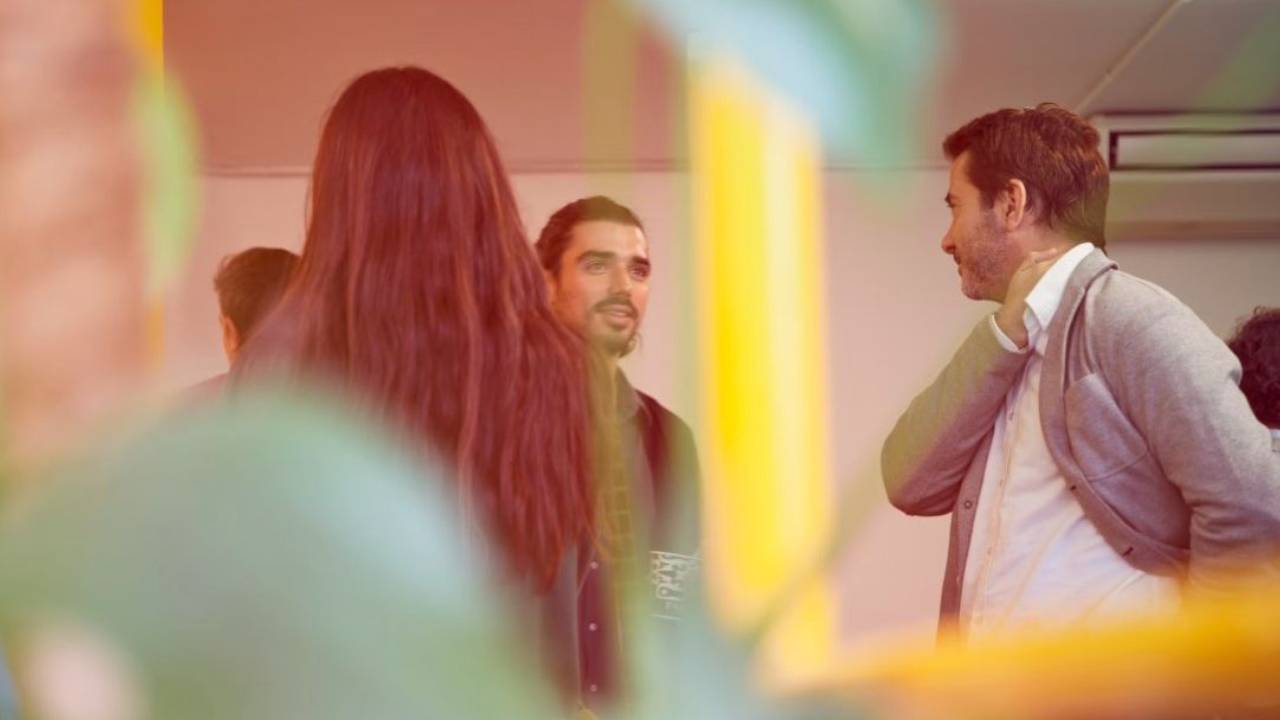Susan Young's
Amplify Blog
The Client Experience Gap

Client challenges don't typically come from poor intentions or weak talent.
Problems on projects come from inconsistent processes that leave teams guessing in high‑stakes moments.
This is the client experience gap that shows up as miscommunication:
🚩Different PMs delivering wildly different experiences
🚩Missed details that should be automatic
🚩Clients feel like they need to manage the team
🚩Rework caused by unclear handoffs
🚩Leaders stepping in to “save” meetings
Your clients don’t want heroics.
They want consistency.
🎯Consistency comes from communication-based systems.
The completion of successful A/E/C projects requires strong foundations.
Not just effort.
The Real Issue A/E/C Executives Are Dancing Around

Most industry leaders I speak with aren’t worried about strategy.
Instead, their main concern is execution through people.
✅They know the plan.
✅They know the numbers.
✅They know the market.
Here's the truth about what keeps them up at night:
“Can my leaders actually move the ball forward without me in the room?”
Communication gaps don’t show up as “communication problems.”
Instead, they appear as rework, missed signals, slow decision-making, and shaky client trust.
Addressing these hidden challenges is the real leadership issue in 2026.
It's not solved by another process or framework.
It’s solved by elevating conversations within the firm.
3 Things A/E/C Leaders Must Prioritize Before the New Year

I met yesterday with a leader of a national construction trade organization to discuss hot-button issues our industry faces as we head into 2026.
We weren't discussing tech skills.
➡️Instead, we were focusing on the critical need for the younger workforce to uplevel their interpersonal communication.
I imagine these takeaways will resonate with you:
- A/E/C's fragmented ecosystem must be improved to enhance job site safety, messaging, and knowledge transfer.
- Newer staff must become proficient in decision-making, problem-solving, and other critical thinking skills. Clarifying information and logical thought processes improve job site safety, project completion, and leadership development.
- Bi-directional knowledge in our multigenerational workforce is essential for continuous learning. Communication is not linear; rather, it is an ongoing process for all generations to embrace.
Here's the truth: Each of these points — along with cybersecurity — is a stark reminder to prioritize ...
Strategic Networking Grows Business

Showing up at a networking event or conference doesn't count as business development.
Choose events carefully and strategically so you attract new relationships and opportunities.
Yes, this includes making small talk 😮
Before putting something on your calendar, consider:
🎯Will your ideal clients be there?
🎯What is your intention?
🎯Who do you want to meet, and why?
🎯How will you mingle and meet new people?
🎯How will you introduce yourself?
There is an art and science to successful networking.
Do you and your teams know how to generate leads and create exciting opportunities at seemingly ordinary events?
If not, you're wasting precious time and your firm is losing money.
PS: Get your nose out of your phone!
How to Get Noticed by Top A/E/C Executives

Communication tip for aspiring construction PMs and leaders:
Knowing the project lingo is good.
📈Knowing the PROFIT lingo is when C-suite execs start listening.
Speak their language and watch your career path transform.
4 Key Elements to Engaging People

Engaging presentations.
They don't open with data or slides of your firm's history and ribbon cuttings.
Engaging presentations get people:
✅Thinking
✅Feeling
✅Reacting
✅Involved
Remember this every time your team prepares for shortlisted interviews, client-facing meetings, or workshop presentations.
Go for emotional connections over numbers.
The data will follow.
🎯Your team can access to repeatable skills that win more bids
Click to learn more about our proven Top Tier Communicator on-demand training.
Communication Isn't a Soft Skill—It's a Revenue Skill

Think about it:
A project manager who can clearly explain trade-offs and guide a client conversation?
🔷That’s risk mitigation.
🔷A superintendent who can speak confidently in a progress meeting?
🔷That’s client retention.
🔷A technical lead who can tell the story behind the numbers in a shortlist interview?
That's how firms win work.
🎯That’s exactly why I built on-demand A/E/C communication and leadership training—so firms can develop confident communicators who move projects and business forward.
Learn anytime, anywhere.
Build skills that you (or your team) can use in every conversation, meeting, and interview.
See how it works here >> https://www.aecamplify.com/top-tier-communicator
AI Is Only As Smart As Your Communication

Clarity is a beautiful thing.
Especially when tech staff are thinking through RFIs, field reports, and meeting agendas that cost A/E/C firms productivity and profits.
Yes, Artificial Intelligence can simplify complex data.
Still, AI tools only bring value when humans provide clear input and prompts.
➡️When prompts are vague or confusing, the info you get back will miss the mark.
The result?
Misunderstandings, cost overruns, and lost credibility.
Clear thinking = Clear Prompts
➡️Our Top Tier Communicator on-demand and live training programs give teams the tools to strengthen clarity, communication, and AI prompts.⬅️
Each of the 3 programs are under $1,000.
Individuals and firms can access today's tools to bridge communication gaps and deliver successful projects.
You're Losing Because Your PMs Don't Know the Process

Back up the bus, A/E/C leaders.
Most newer project managers, estimators, and superintendents aren't familiar with the process of being shortlisted.
Still, you expect them to be confident and well-spoken in seller-doer interviews.
Let's lay a solid foundation for these pros so they have a deep understanding of business development.
When there's a lack of clarity, bids go to your competitors.
To avoid losing revenue, take the time to educate technical staff. 📈
They influence interview panels.
Confidence and business acumen are what owners and stakeholders look for when awarding bids.
How to Turn Project Managers Into Business Development Leaders

Business development professionals and marketers aren't the only rainmakers in A/E/C firms.
Today, everyone is in marketing.
Most project managers and technical leads didn't sign up for this BD role.⬅️
Still, when your teams have time with clients, they must be skillful communicators.
Precious time spent with stakeholders is a significant opportunity to build credibility, trust, and connections that will help land your next big project.
Pitches at the end of a project often fall flat.
📈A better strategy in business development is to create value gradually over the course of work.
Taking this approach rather than waiting until the end means you're not pitching anything.
Repeat clients and referrals will easily fall into your lap without you awkwardly asking for a sale.
You'll earn trust and work by:
🎯Communicating daily and being proactive
🎯Asking strategic questions and sharing insights from project managers
🎯Framing conversations around client results
When your PMs and te...


